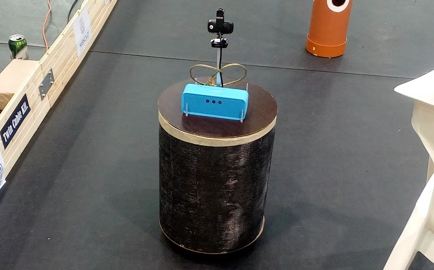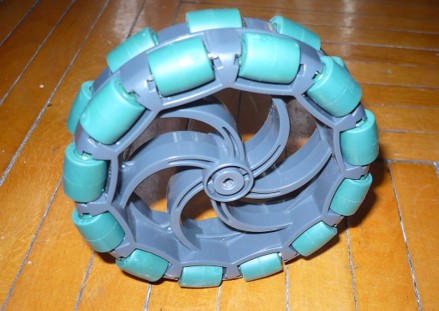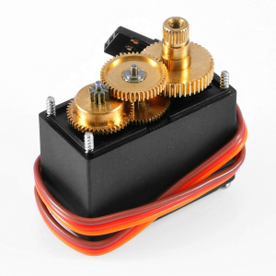The choice of shape and size.
The robot was originally made for the 10th Hungarians on Mars race. “It can’t weigh more than 5kg. It must fit in a cylinder 30cm in diameter and 60cm high”

Moving a robot I.
There are rollers on the surface of the wheels, we used an omniwheel solution. Due to the arrangement, two wheels are rotated for straight travel, the other two are rolled. We have redesigned metal gear hobby servo motors so that they don’t just move 180 degrees.


Moving a robot II.
Potentiometer can climb even with instant glue, so motors must always be recalibrated. In the first version, the offset value was stored in the arduino. Later, this could be set on the robot. Now we use Adafruit servo shield, which makes the operation much more stable.